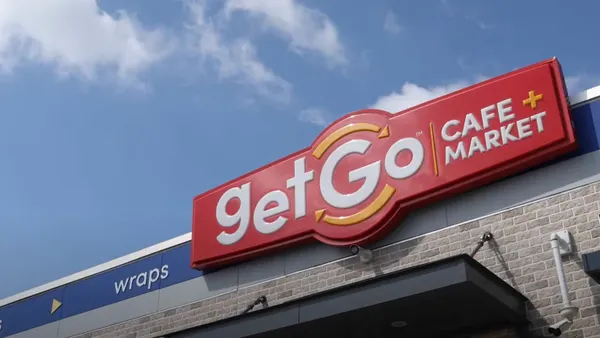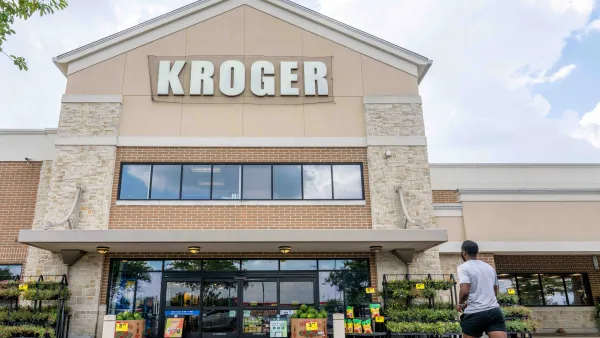Dive Brief:
- Sprouts recorded a strong first quarter, driven by a huge increase in sales as customers flocked to grocery stores in March amid the initial phase of the COVID-19 pandemic. Sales hit $1.6 billion during the period, which ended March 29, up 16% from last year's Q1, while net income grew 63%, to $92 million. Gross profit margins surged 180 basis points to 36.1%. The company saw elevated sales continue into April, but not at as strong a clip as it recorded in March. “We believe the stockpiling is over [but] our observation is the industry is experiencing a significant change in consumer behavior,” CEO Jack Sinclair said Tuesday in a conference call with analysts.
- The specialty grocer saw e-commerce sales surge 950% in April compared with 2019 as shoppers reacted to the pandemic. The chain has rolled out pickup service to all of its 344 stores, and is looking at a variety of options to expand its ability to meet online demand going forward, Sinclair said, without offering specifics. “Though it is much too early to define a new normal, COVID-19 has been a catalyst for trial of our e-commerce offerings, which could stick with many customers as we exit this pandemic,” he said.
- Sprouts has been able to keep its stores stocked during the pandemic because it stocks a unique array of products, although the company has had difficulty finding suppliers for products it sells under its own brand, Sinclair said. “Because our assortment’s a little bit different, we’re not battling against the big guys, the big club channels or the big mass channels in trying to access branded inventory that the other grocers are chasing after,” Sinclair said.
Dive Insight:
Sprouts appears to be well-situated as it looks to adjust its strategy and operations in response to the COVID-19 pandemic. The company’s heavy focus on natural products, produce and other items seen as being central to a healthy diet could give it an edge as it looks to expand its fleet and build customer loyalty at a time when people have become more heavily dependent on grocery stores.
“I don’t see us as directly competing with [other] grocers for traffic. We’re directly competing with people for their food spend, and I’m very confident that there’s enough people there for us to more than achieve our ambitions,” Sinclair said.
Sprouts refined a long-term growth strategy Sinclair had alluded to since he became CEO last summer. It's looking to add locations at a 10% annual clip, and will be concentrating on building smaller stores that cost less to construct and run but yield sales in line with the larger stores deliver. New Sprouts locations will be between 21,000 and 25,000 square feet, down from the 30,000 square-foot boxes the company has developed up to this point.
The company does not plan to eliminate any product categories, but will focus on produce, frozen foods and what Sinclair called center-of-plate proteins. Deli counters will remain, but in a simplified form, according to Sinclair. Sprouts plans to devote less space to vitamins and supplements even though these items sell well.
Shoppers have responded well as Sprouts has shifted to prepackaging products like salad ingredients, olives and bulk goods it used to sell in loose forms in response to the pandemic, Sinclair said. He suggested that the company may change how it operates going forward as a result. “COVID-19 gave us a glimpse into what this may look like," he said. "It highlighted that simplified, premade items like salads [have sold well], and more complex costly salad bars may not be necessary in future models.”
The company is also experimenting with self-checkout, although it has no timetable for when it might introduce that option to shoppers, CFO Denise Paulonis said during the analyst call.
In a twist, Sprouts is using its own workers to pick products for pickup even though it works with Instacart to operate its e-commerce service. Using store staff to fulfill orders helps increase efficiency because they are more familiar with where items are located than Instacart’s contractors, according to the company.
"Though it is much too early to define a new normal, COVID-19 has been a catalyst for trial of our e-commerce offerings, with could stick with many customers as we exit this pandemic,” Sinclair said.
Sprouts officials said they realized they only need to boost Sprouts’ share of its target customer base by 3% to double sales, and will be retooling their marketing budget to reach these high-priority consumers, who are attracted to products like grass-fed beef, antibiotic-free chicken and vitamins and supplements.
The company has cut back on print advertising, and will be spending more heavily on online advertising, including social media.
“If anything, I’m more confident about our growth potential in a post-COVID world," Sinclair said. "Our proposition of healthy, affordable food, supported by a compelling vitamin department and enhanced assortment in a smaller box will be exciting for our target customer in the future."











